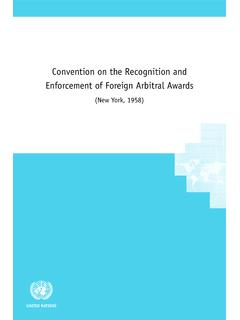Transcription of Comparing privacy laws: GDPR v. Australian Privacy Act
1 Comparing Privacy laws: GDPR v. Australian Privacy Act2 About the authorsOneTrust DataGuidanceTM provides a suite of Privacy solutions designed to help organisations monitor regulatory developments, mitigate risk, and achieve global DataGuidanceTM Regulatory Research includes focused guidance around core topics ( GDPR, data transfers, breach notification, among others), cross - border Charts which allow you to compare regulations across multiple jurisdictions at a glance, a daily customised news service, and expert tools, along with our in-house analyst service to help with your specific research questions, provide a cost-effective and efficient solution to design and support your Privacy programme. Mills Oakley is a leading national law firm with offices in Melbourne, Sydney, Brisbane, Canberra and Perth. In 2017, we were awarded the Law Firm of the Year title at the Australasian Law Awards and have consistently been ranked by independent media surveys including those conducted by The Australian and The Australian Financial Review as Australia s fastest growing law firm, as benchmarked against other leading corporate law over 100 partners and more than 700 staff, Mills Oakley offers strong expertise in all key commercial practice areas including: Digital Law, Property; Construction and Infrastructure; Planning and Environment; Commercial Disputes and Insolvency; Banking and Finance; Building; Insurance; Intellectual Property; Litigation; Private Advisory.
2 And Workplace Relations, Employment and DataGuidanceTM Angela Potter, Holly Highams, Tooba Kazmi, Angus Young, Kotryna Kerpauskaite, Theo Stylianou, Victoria Ashcroft, Alexis KateifidesMills OakleyAlec Christie and James WongImage production credits: : cnythzl / Signature collection / | MicroStockHub / Signature collection / key p6-49: enisaksoy / Signature collection / : AlexeyBlogoodf / Essentials collection / : cnythzl / Signature collection / | MicroStockHub / Signature collection / Introduction 51. Scope Personal scope Territorial scope Material scope 112.
3 Key definitions Personal data Pseudonymisation Controller and processors Children Research 213. Legal basis 234. Controller and processor obligations Data transfers Data processing records Data protection impact assessment Data protection officer appointment Data security and data breaches Accountability 34 5.
4 Individuals' rights Right to erasure Right to be informed Right to object Right to access Right not to be subject to discrimination in the exercise of rights 44 Right to data portability 456. Enforcement Monetary penalties Supervisory authority Civil remedies for individuals 49 Table of contents345 Introduction5On 25 May 2018, the General Data Protection Regulation (Regulation (EU) 2016/679) ('GDPR') went into effect.
5 The Privacy Act 1988 (No. 119, 1988) (as amended) ('the Privacy Act') is Australia's consolidated data protection law which aims to promote the protection of individuals' Privacy . Given the Australian practice of using the Office of the Australian Privacy Principle ('APP') Guidelines issued by the Australian Information Commissioner ('OAIC') to interpret and apply the Privacy Act, comparable to the Recitals of the GDPR, the guide also refers to relevant APP Guideline particular, both laws are comprehensive in nature regarding material and territorial scope. For example, the Privacy Act refers to personal information which, in practice, is a similar concept to personal data under the GDPR, and both define special categories of data, as well as include specific requirements for the processing of such data. Furthermore, the GDPR outlines similar requirements to the Privacy Act in relation to its extraterritorial scope, and both texts include comparable provisions in relation to the right to access and the right to be , there are some key differences between the GDPR and the Privacy Act.
6 In particular, the Privacy Act does not distinguish between data controllers and data processors. In addition, the GDPR contains provisions outlining the legal basis of processing, whereas the Privacy Act provides that personal information may only be collected by fair and lawful means, and for purposes relating to the entity's functions and activities. Moreover, the Privacy Act does not explicitly provide individuals with some of the key data subject rights provided by the GDPR, including the right to erasure, the right to object, and the right to data portability. Further differences can be found in relation to the obligations of controllers and processors. For instance, the GDPR requires that data controllers and data processors maintain a record of their processing activities, conduct a data protection impact assessment ('DPIA'), and appoint a data protection officer ('DPO') in certain circumstances, whereas the Privacy Act does not contain similar provisions.
7 In addition, whilst both the GDPR and the Privacy Act provide for monetary and administrative penalties, the stated amounts of the fines under each differ significantly, although in practice the civil penalties under the Privacy Act may be applied such that in large scale serious interferences with Privacy , the amount of the fines under each may be similar. Also, there is no direct cause of action for individuals to seek compensation under the Privacy guide is aimed at highlighting the similarities and differences between these two key pieces of legislation in order to assist organisations in complying with and overview of the GuideThis Guide provides a comparison of the two pieces of legislation on the following key provisions: 1. Scope2. Key definitions3. Legal basis4. Controller and processor obligations5. Individuals' rights6.
8 EnforcementEach topic includes relevant articles and sections from the two laws, a summary of the comparison, and a detailed analysis of the similarities and differences between the GDPR and the Privacy Act, with reference to the APP Guidelines. Consistent: The GDPR and the Privacy Act bear a high degree of similarity in the rationale, core, scope, and the application of the provision considered. Fairly consistent: The GDPR and the Privacy Act bear a high degree of similarity in the rationale, core, and the scope of the provision considered; however, the details governing its application differ. Fairly inconsistent: The GDPR and the Privacy Act bear several differences with regard to scope and application of the provision considered, however its rationale and core presents some similarities. Inconsistent: The GDPR and the Privacy Act bear a high degree of difference with regard to the rationale, core, scope and application of the provision of the GuideThis Guide is general and educational in nature and is not intended to provide, and should not be relied on, as a source of legal advice.
9 The information and materials provided in the Guide may not be applicable in all (or any) situations and should not be acted upon without specific legal advice based on particular (cont'd)Key for giving the consistency Personal scope The GDPR applies to data controllers and data processors, which may be businesses, institutions, public bodies, as well as not-for-profit organisations. The Privacy Act on the other hand does not distinguish between data controllers and data processors and applies to all 'APP entities' (that may be public authorities or private organisations, including not-for-profit organisations).Both pieces of legislation protect living individuals in relation to their personal data. However, the Privacy Act does not provide a definition of 'data subject' but does provide a definition of 'individual' which is the subject of the protections under the Privacy Privacy ActArticles 3, 4(1)Recitals 2, 14, 22-25 Sections 6, 80G(2)SimilaritiesThe GDPR only protects living individuals.
10 The GDPR does not protect the personal data of deceased individuals, this being left to Member States to regulate. The GDPR applies to data controllers and data processors that may be public Privacy Act protects the personal information of 'individuals,' defined as 'natural persons.' While not specifically noted, as an 'individual' implies a living person, the Privacy Act does not (except as specifically noted) apply to the information of or about deceased APP Guidelines clarify that the definition of 'personal information' refers to an opinion about 'a natural person.' The ordinary meaning of a 'natural person' does not include deceased persons. However, information about a deceased person may include information about a living individual and be 'personal information' for the purposes of the Privacy Privacy Act applies to all APP entities which may be public bodies.


